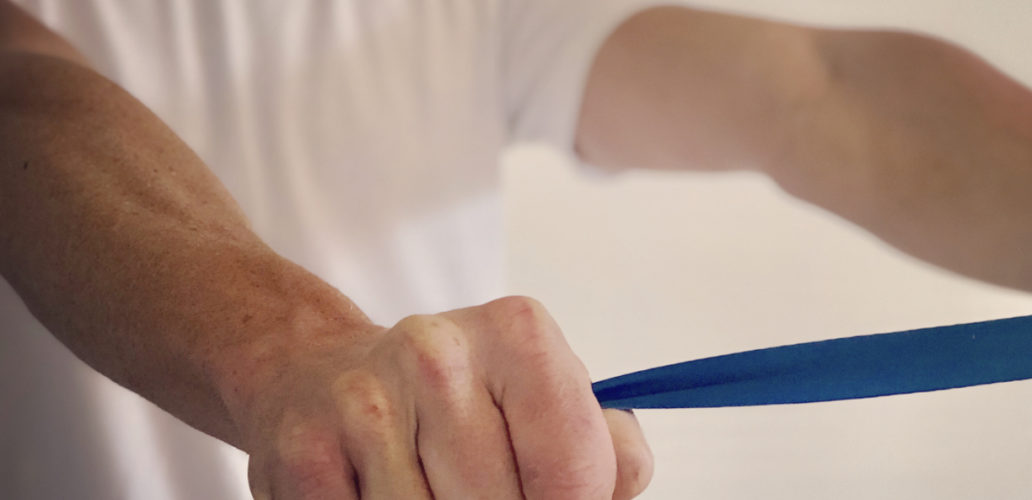
Frozen Shoulder
Do you have stiffness in your shoulder that has started for no apparent reason? Do you have severe pain in your shoulder, which is particularly painful at night? Are you finding it difficult to move your arm and reach as far as you used to be able to? This could be a frozen shoulder.
What is frozen shoulder?
Frozen shoulder is a common term used to describe the condition “adhesive capsulitis”, which involves a thickening and contracture of the capsule and connective tissues surrounding the shoulder joint.
The common three phases of a frozen shoulder are:
“Freezing” (becoming painful)
– Pain becomes increasingly severe, often worse at night
– Shoulder begins to become stiff, often first losing the ability to fully reach overhead or rotate the arm backwards.
– This period typically lasts 2-9 months
“Frozen” (stiffness)
– Pain is less severe
– There is considerable shoulder stiffness, affecting activities of daily life
– This period typically lasts 4-12 months
“Thawing” (resolving)
– Pain resolves
– Shoulder range of motion is gradually restored
– This period typically lasts 5-26 months
What causes it?
It is still unknown what exactly causes frozen shoulder.
It can sometimes start after a shoulder injury or surgery but more often there is no underlying cause. Some conditions such as diabetes and connective tissue disorders may increase the likelihood of developing frozen shoulder.
It most commonly occurs in the 40-60 year old age group and is more likely to affect women than men.
Osteopathy and Frozen Shoulder
In the early stages of frozen shoulder it can be difficult to differentiate the symptoms from a number of other shoulder conditions so our osteopaths will perform a careful assessment to determine a diagnosis of your pain.
Each phase of frozen shoulder requires a different approach and form of treatment so our osteopaths will tailor a treatment and management plan to suit you. The symptoms of frozen shoulder can be flared up by inappropriate treatment and management so it is important to seek advice early on.
Our Approach
- Osteopathic techniques including soft tissue massage, joint articulation, muscle stretching and mobilisation may be used to help relieve pain and reduce muscle tension around the shoulder.
- A program of appropriate gentle stretching and strengthening exercises may help to improve shoulder movement and maintain muscle strength.
- Our osteopaths will also chat to you about some small modifications you can make to your daily routine to avoid aggravating the symptoms.
References
Itoi E et al: Shoulder stiffness: current concepts and concerns. Arthroscopy. 32(7):1402-14, 2016
Le HV et al: Adhesive capsulitis of the shoulder: review of pathophysiology and current clinical treatments. Shoulder Elbow. 9(2):75-84, 2017
Georgiannos D et al: Adhesive capsulitis of the shoulder: is there consensus regarding the treatment? A comprehensive review. Open Orthop J. 11:65-76, 2017
Hsu JE et al: Current review of adhesive capsulitis. J Shoulder Elbow Surg. 20(3):502-14, 2011
Ewald A: Adhesive capsulitis: a review. Am Fam Physician. 83(4):417-22, 2011
Page MJ et al: Manual therapy and exercise for adhesive capsulitis (frozen shoulder). Cochrane Database Syst Rev. CD011275, 2014
